Now it's time to recognize some of out women who made a difference in 2013!
Masha Bast, bisexual transgender human rights lawyer — in Russia
In September prominent Russian human rights lawyer Masha Bast took to the streets of Moscow to protest the country’s newly passed ban on “propaganda of nontraditional sexual relations.” But just a few days later, Bast revealed her personal stake in the fight for the lives of LGBT Russians: Bast is a bisexual transgender woman. The attorney was even profiled in The Moscow Times, where she patiently explained the nuances of her trans identity to the reporter and noted that nothing “made” her transgender.
"It isn't a matter of upbringing," Bast told the Times. "It's nature. That's why I think the law against 'homosexual propaganda' is a law against children and one that targets certain social groups. It is a fascist law and nothing else."
That’s no small indictment in a country that’s endlessly escalating its crackdown on LGBT people and political dissidents of all stripes. Unintimidated, Bast continues to practice law in Russia and regularly records video diaries on her YouTube channel.
Denise Frohman, Lesbian Slam Poet Who Powerfully Sticks It to the (Straight) Man
Denise Frohman edged out 11 other finalists to take first place at the 2013 Women of the World Poetry Slam last March in Minneapolis. But it wasn’t until her powerful spoken-word piece, “Dear Straight People,” began making the rounds online in August that we realized just how badass Frohman is. Her poem, clocking in at just over three minutes, is at once powerful, funny, truthful, and sarcastic. And best of all, it’s just a sampling of Frohman’s incredible work. Get her debut album, Feels Like Home, complete with poetry, music, and more, right here.
“Dear straight people,” spits Frohman in her viral poem. “I don’t think that God has a sexual orientation, but if she were straight, she’d be a dope ally.”
Watch the performance that put Frohman on our radar below.
Coy Mathis, transgender 6-year-old in Colorado who won her fight to be treated equally at school
This year could easily go down as the first in which transgender people finally garnered a noticeable chunk of mainstream media coverage. And by and large, that visibility was led by young people who challenged school policies, and in some cases, state laws, that treated them unequally.
Perhaps the best — and most adorable — representative of this trend is Coy Mathis, a transgender 6-year-old girl in Colorado who was suddenly informed that she could no longer use the girls’ bathroom at her elementary school in a suburb of Colorado Springs. Although Mathis, who was assigned male at birth but has identified as female since she was 18 months old, had used the girls’ restroom without incident for more than a year when school officials told her she had to use the boys’ room or a private bathroom. Her parents pulled her out of school until the Colorado Civil Rights Division issued a landmark ruling in June declaring that Mathis — and all transgender students in the state — have an unalienable right to use the bathroom that corresponds with their gender identity. Mathis was subsequently honored by GLAAD and other media organizations — including our sibling publication, The Advocate — though we bet she’s mostly just excited to be back at school with her friends, having officially won the right to potty.
Ash Beckham’s Incredible Speeches Went Viral
Lesbian activist Ash Beckham had a good year when it comes to giving speeches. In February, Beckham addressed a crowd of 800 in Boulder, Colo., with a powerful five-minute speech that absolutely demolished the pejorative use of the word “gay.” Then in October, Beckham delivered an equally powerful TED talk on the current state of homophobia. Again in Boulder, Beckham challenged the audience’s understanding of the word “homophobia,” noting that homophobes aren’t filled with fear, just loathing. In just 10 minutes, Beckham had us — and, we’re willing to bet, much of her audience in the generally liberal college town — ready to live our lives as “active activists, not passive ones when it comes to protecting our fellow humans from hate of any kind.”
Watch Beckham’s TED talk below.
Patricia Rose Became the Highest-Ranking Openly LGB Member of the Military
Now that “don’t ask, don’t tell” has faded into history, there’s a new public awareness that lesbian, gay, and bisexual people in the military are serving with distinction and rising high in the ranks. Air Force reservist Patricia Rose became the top-ranking openly LGB officer (transgender people still can’t serve openly) in the spring of this year when she was promoted to major general. She had been a brigadier general since 2010, and when she was promoted to major general in a ceremony at her home base, Wright-Patterson Air Force Base in Ohio, Rose’s wife, retired naval officer Julie Roth, pinned the second star on Rose’s uniform. Leading the ceremony was Gen. Janet Wolfenbarger, the Air Force's first female four-star general. Rose, a specialist in logistics, entered the Air Force through officer training school in 1984. She has served with the U.S. Central Command in the Middle East, directing logistics for forces in Iraq and Afghanistan, as well as in many stateside posts. In her current reserve assignment, she’s mobilization assistant to the commander in the Air Force Materiel Command at Wright-Patterson. In civilian life, she handles public relations and marketing for a hospital.
Pictured at left: Brenda Clark and Carol McCrory
Everyday Women Are Fighting the Good Fight for Marriage Equality
Activists, politicians, and lawyers are key components of our movement, but change doesn’t happen without the involvement of ordinary people. There were many everyday women who contributed to this year’s marriage equality victories and others who are laying the groundwork for future progress. Widow and retiree Edie Windsor took her case for marriage recognition all the way to the U.S. Supreme Court and won, with the court striking down the portion of the Defense of Marriage Act that kept the federal government from recognizing same-sex marriages. It’s also worth noting that she was represented by an out lesbian lawyer, Roberta Kaplan. California couple Kris Perry and Sandy Stier were plaintiffs in another case that went to the nation’s highest court, and it resulted in the restoration of marriage equality in the Golden State.
There were four female couples among the six pairs who successfully sued for the right to marry in New Jersey. In two other states where marriage equality came through the courts, women were in the majority among the couples who sued — in Utah, two out of three, and in New Mexico, five out of six. Among the New Mexico plaintiffs were Jennifer Neuman-Roper and Angelique Neuman-Roper, who had asked that the proceedings to be expedited because of Jennifer’s terminal cancer diagnosis. This led several of the state’s counties to issue marriage licenses to same-sex couples before the state’s Supreme Court ruled for marriage equality throughout New Mexico.
In states where marriage rights are still to be won, women are in the forefront as well. In North Carolina, the state constitution bans same-sex marriage, but the official who oversees marriage licenses in Buncombe County, which includes the largely progressive city of Asheville, decided to accept license applications from gay and lesbian couples. Brenda Clark and Carol McCrory, who have been together for 25 years, were the first to have their application accepted. The couple had tried three times before but had been rejected; now they’re the first same-sex couple in the Deep South to have succeeded in filing a marriage license application, although it remains to be seen if they will actually get to marry. In neighboring Tennessee, this fall two female and two male couples sued marriage rights and recognition. And in Virginia, two female couples have filed a similar suit.
Pictured at left: Kelley Quinn and Kelly Cassidy
Lesbians Making Our Laws
Of course, the role of legislators in winning marriage equality shouldn’t be minimized. In states across the nation where equality came through legislative action, lesbian lawmakers put a face on the issue. The day before the Illinois marriage equality bill was introduced in the state legislature in January, Rep. Kelly Cassidy got a marriage proposal from her partner, Kelley Quinn, just outside the state capitol in Springfield. Cassidy then traversed the state to make sure the bill would become law, which it finally did in November; it takes effect next June. Another lesbian state representative in Illinois, Deborah Mell, was a force behind the bill’s passage with an impassioned speech to the House of Representatives in the spring, before she left the legislature for the Chicago City Council. Also, the straight ally who was chief sponsor of the bill in the state Senate was a woman, Heather Steans.
In Delaware, another state where lawmakers approved marriage equality this year, state senator Karen Peterson came out as lesbian during debate over the legislation. “We are what God made us,” said Peterson, who discussed her relationship of 24 years with her partner, Vikki Bandy. “We don't need to be fixed. We aren't broken.” This summer, Peterson and Bandy became the first same-sex couple married under the law. In Minnesota, Rep. Karen Clark, who is lesbian, was the chief sponsor of the marriage equality bill. She and other out rep, Susan Allen, helped assure its passage. Rhode Island joined the rest of the New England states in the marriage equality column due partly to the efforts of two lesbian lawmakers, Sen. Donna Nesselbush and Rep. Deb Ruggiero. They and the three gay men in the Rhode Island legislature “have given face and real life form to who ‘we’ are,” Nesselbush told local LGBT publication Get.
In Hawaii, however, lesbian legislator Jo Jordan struck a sour note when she announced she was voting against marriage equality even though the law would benefit her. “You know how hard it is for me to say no?” she said. “I have to say no.” Happily, the majority of lawmakers said yes, as did Gov. Neil Abercrombie, who signed the bill into law.
Countering Westboro Baptist Church’s Hate With Love
Kimberly Kidwell and Katie Short’s marriage has no legal standing in Kansas, where it was performed, or in Arkansas, where they live, but it’s important symbolically because of where there ceremony happened: across the street from Topeka’s infamous Westboro Baptist Church, of “God Hates Fags” notoriety. The women had their ceremony, conducted by a lesbian minister, in June on the lawn of the Equality House in full view of some haters from Westboro. The nonprofit organization Planting Peace bought the house across from the antigay church last year and had it painted in rainbow colors earlier this year, and its presence is meant to counter Westboro’s hateful message. Church members put up some protest signs, but the happy brides hardly gave them a thought. “I knew the signs would be there, and I wasn’t even angry about it,” Kidwell told The Huffington Post. “We were just so ecstatic to be getting married.”
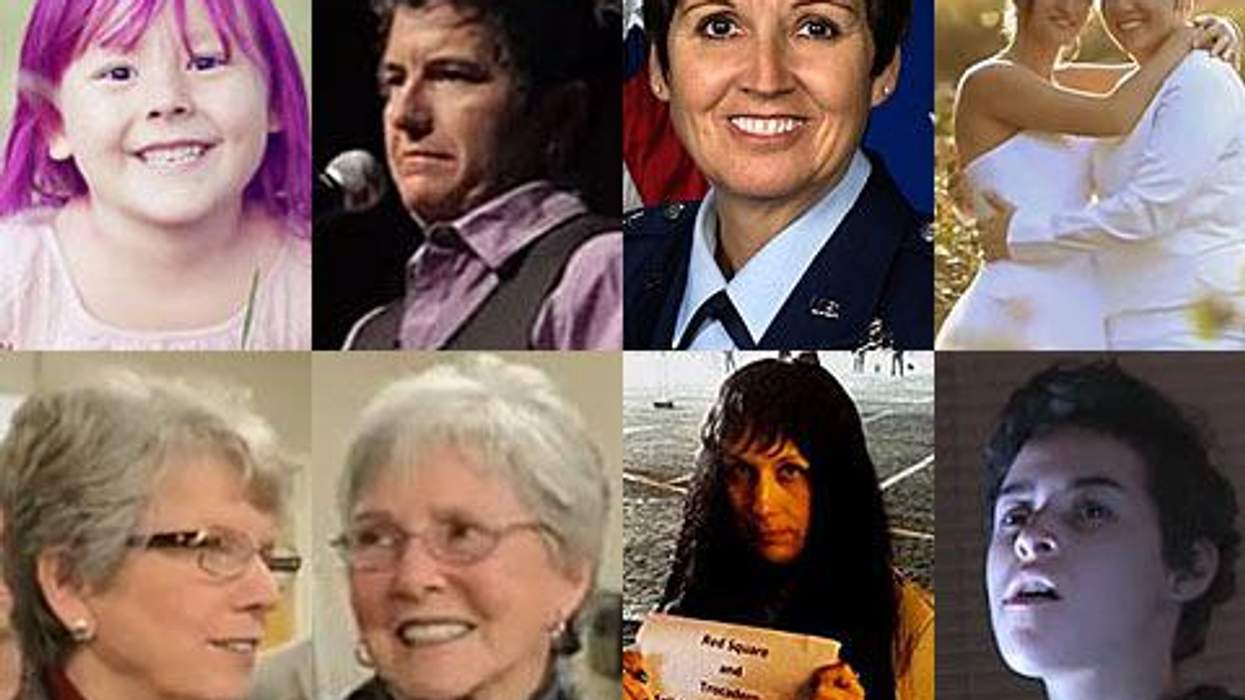




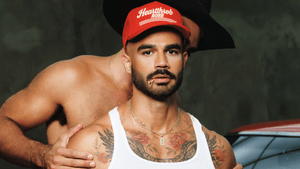

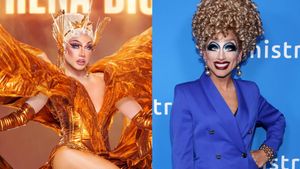




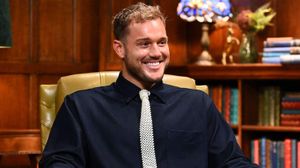
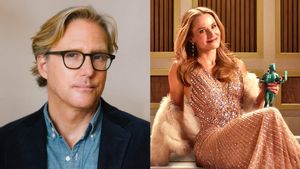
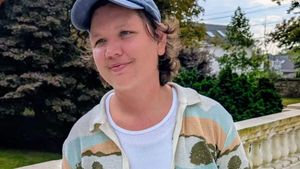
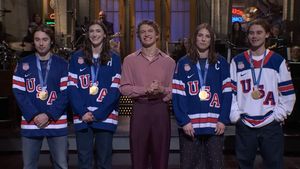









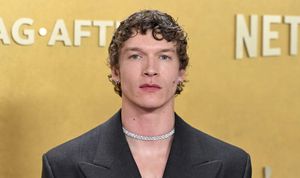


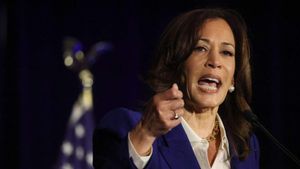





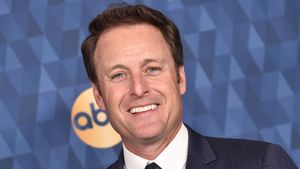






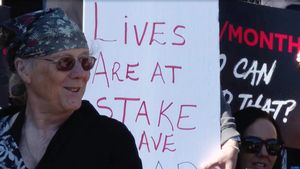

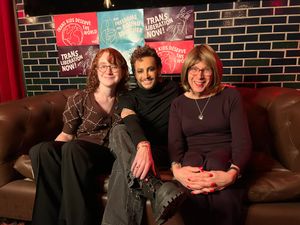

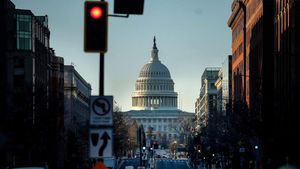
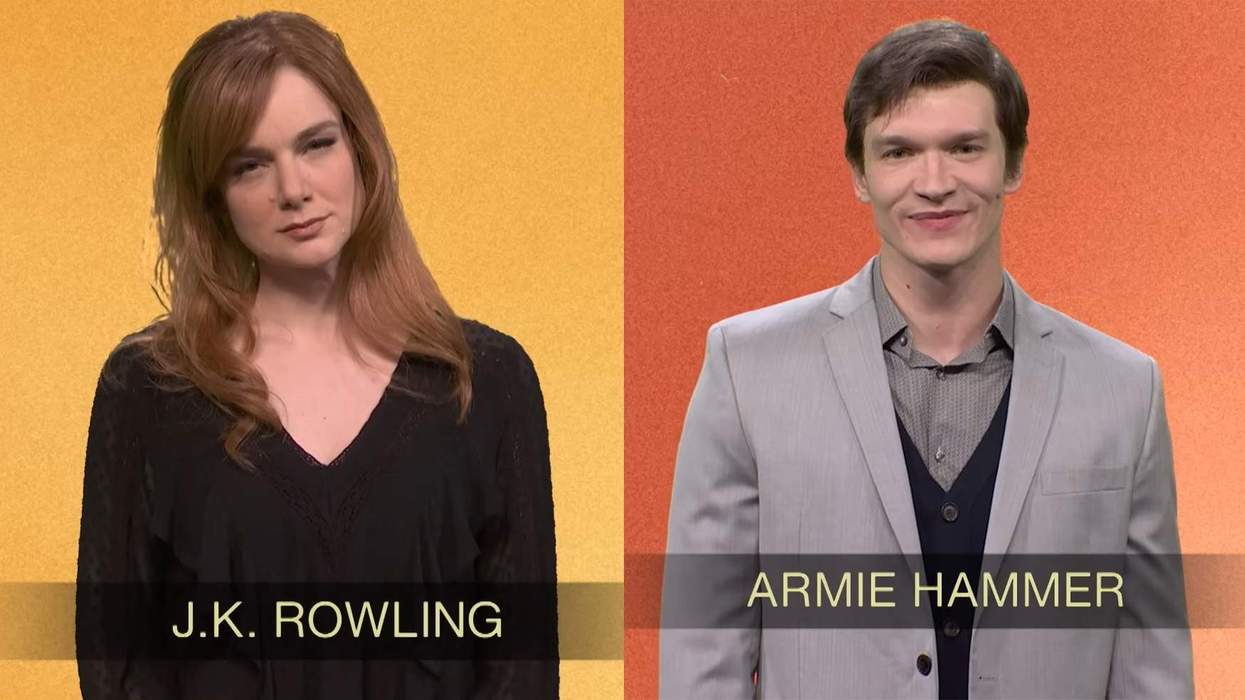
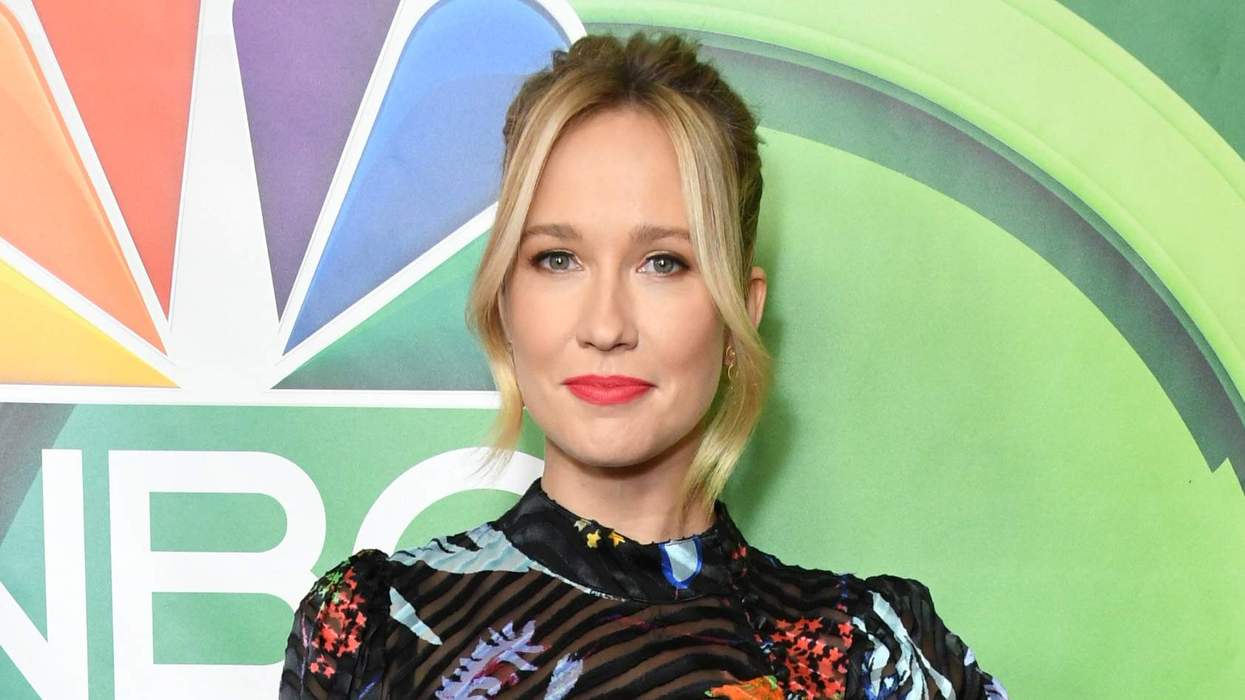
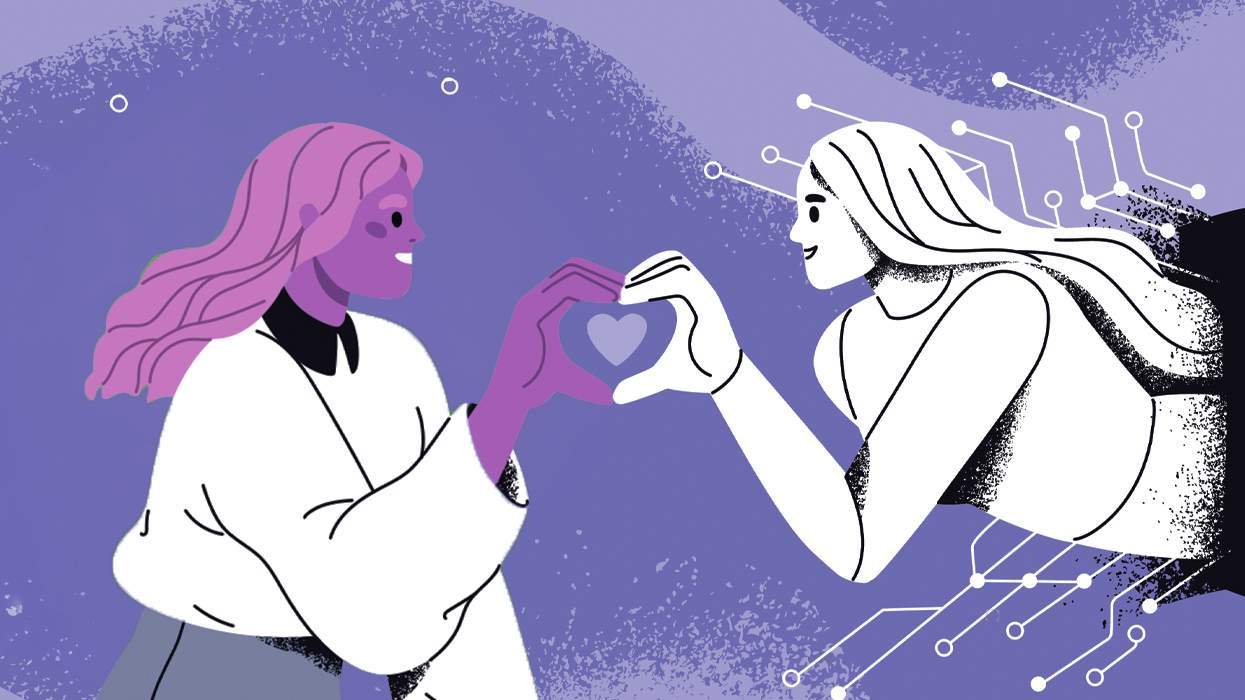
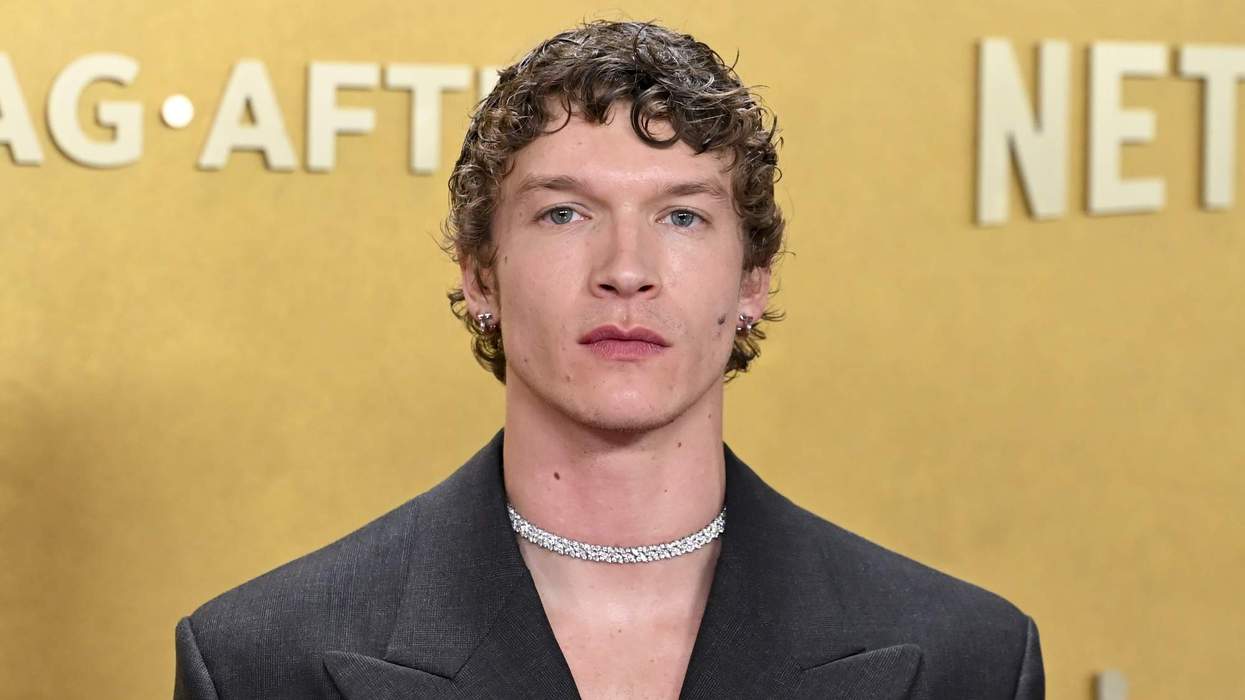

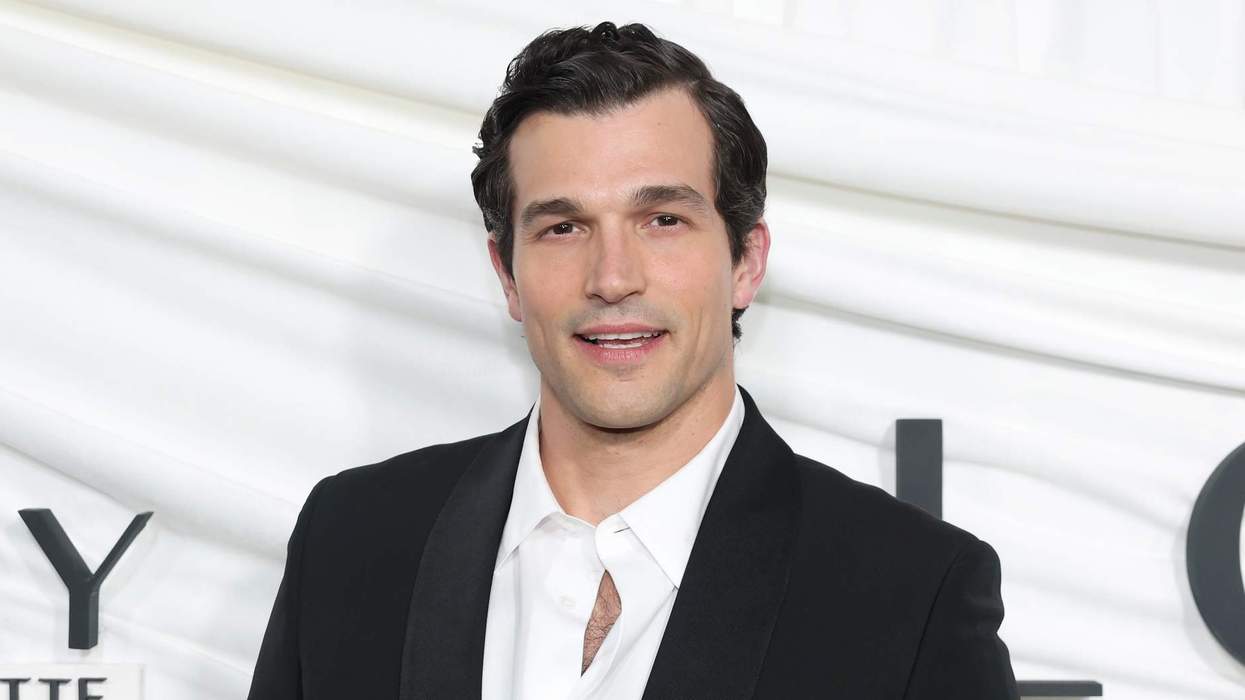

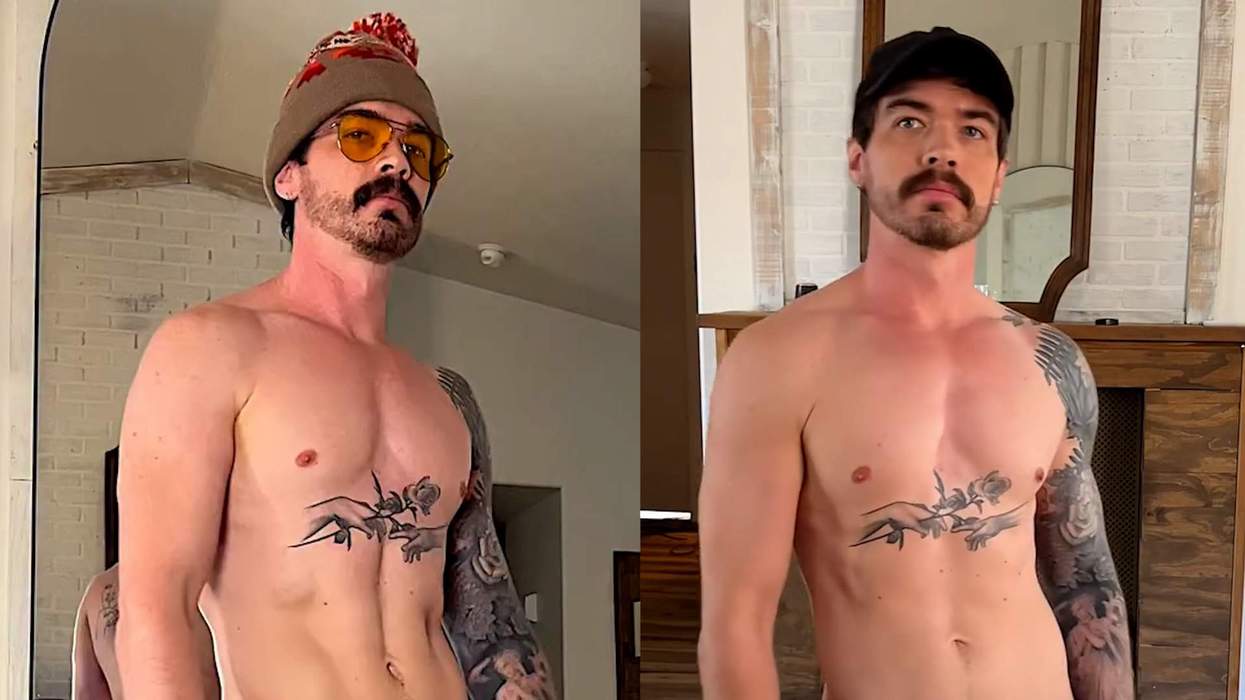
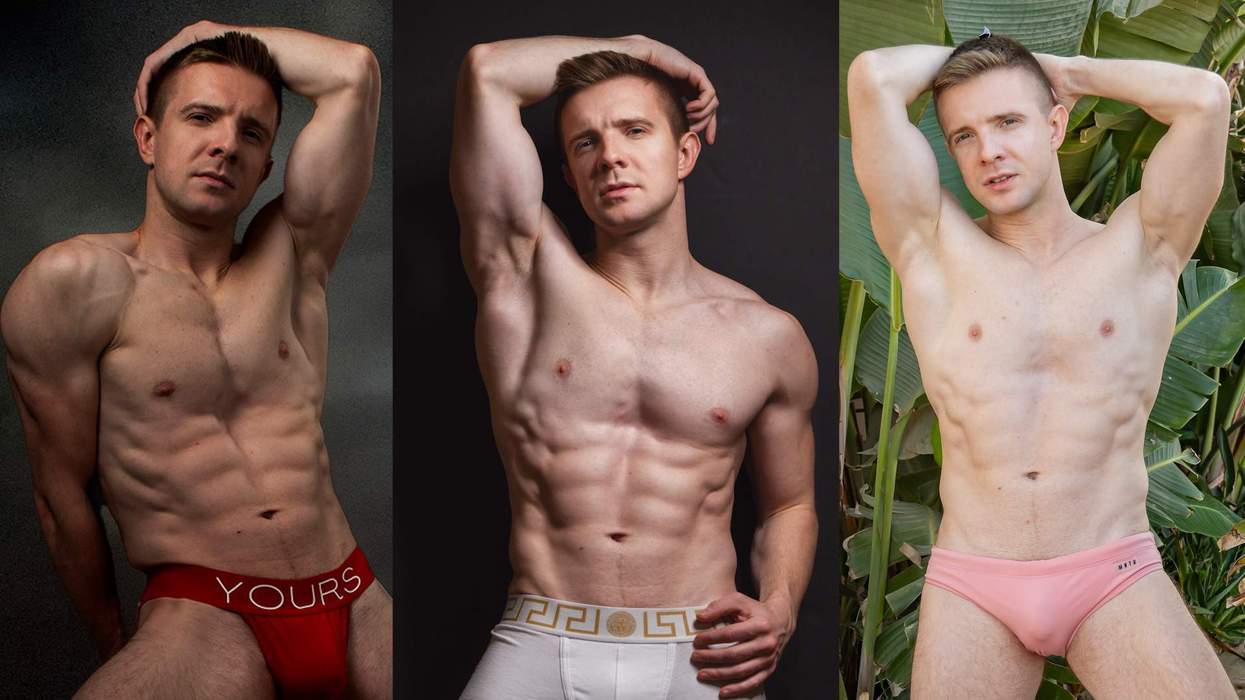
































 Cindy Ord/Getty Images
Cindy Ord/Getty Images























